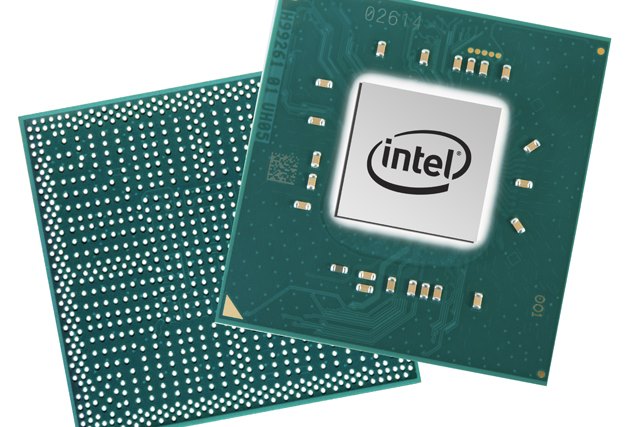
Intel will release chips free from Meltdown and Spectre bugs this year
The discovery of the Meltdown and Spectre vulnerabilities in processors caused a great deal of panic and confusion. The poor reliability and performance hit brought about by patches did little to help consumer confidence, but Intel says it will be releasing processors in 2018 that are free from the problems.
The move will be welcomed by customers who have been frustrated by problematic bug fixes designed to mitigate against the bug but which brought issues of their own. A timescale for the hardware solution has not been pinned down more specifically than "later this year."
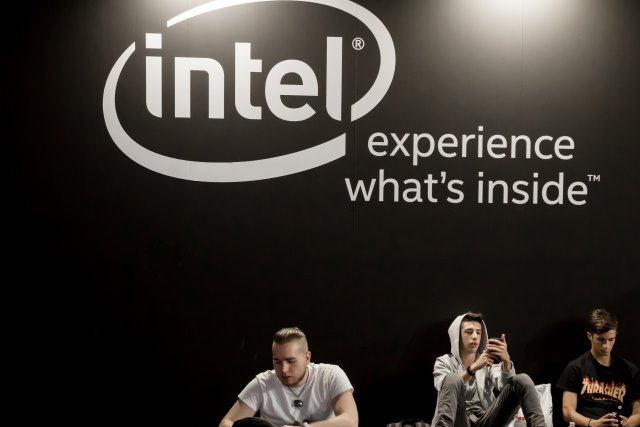
Intel tells customers to stop installing Meltdown/Spectre patches due to 'unpredictable' reboot issues
The fallout from the Meltdown and Spectre bugs continues to plague Intel. The company has been hit with lawsuits, users complained about performance drops, and some users found that their computers were rendered unbootable. For people with Broadwell and Haswell chips, there was a problem with random reboots, and as a result of this -- some two weeks down the line -- Intel is now advising people to stop installing its patches.
Executive vice president Navin Shenoy says that the company is close to determining the root cause of the problem, apologized for reboots and "unpredictable system behaviour," and warns that customers should stop deploying the current version of the patches until an update is produced.

Acer unveils Chromebook 11 C732, Chromebook Spin 11, and Chromebox CXI3
When it comes to Chromebooks, Acer is one of the premier manufacturers. From the early days of Google's desktop OS, Acer has produced quality computers running the Linux-based Chrome OS. Best of all, Acer's Chromebooks and Chromeboxes are often quite affordable. This makes sense, since the company is largely a value-focused manufacturer. Quite frankly, Acer and Chrome OS are a match made in heaven.
Hot on the heels of announcing its all-new Chromebook 11, the company today unveils three new Chrome OS computers -- Chromebook 11 C732, Chromebook Spin 11, and Chromebox CXI3. While the Chromebooks will likely get much of the attention, I am quite smitten with the Chromebox. This diminutive desktop is absolutely gorgeous, and it is chock-full of useful ports. The Chromebook 11 C732 is also quite intriguing, thanks to its optional LTE connectivity!

Intel: Meltdown and Spectre bugs also affect Ivy Bridge, Sandy Bridge, Skylake and Kaby Lake systems
In an update following the Meltdown and Spectre revelations, Intel has admitted that the problems also affect newer chips. The company had previously focused its attention -- and that of users -- on Broadwell and Haswell chips, but now company vice president Navin Shenoy has conceded that Ivy Bridge, Sandy Bridge, Skylake and Kaby Lake-based platforms are susceptible.
In rather more positive news, Shenoy also says that good progress has been made in identifying the root cause of the problem. Furthermore, beta microcode should be made available to vendors next week.

Intel promises transparency as Meltdown patch causes reboot problems with Broadwell and Haswell chips
Intel CEO Brian Krzanich has written an open letter to the technology community addressing the fallout from the Meltdown and Spectre vulnerability revelations. In it he promises transparency from the company and reiterates a previous promise that patches will be made available for the majority of processors by next week.
The letter comes as users of systems with Broadwell and Haswell chips report problems with increased reboots.

This is the easiest way to check if your Windows PC is vulnerable to Spectre and Meltdown
You’ll no doubt be aware of the Spectre and Meltdown processor bugs, as well as the many problems caused by the patches pushed out to address them.
Microsoft last week released a PowerShell script which lets you check if your PC is vulnerable to Meltdown or Spectre, but now Ashampoo has made a free tool available which makes checking for the problem as easy as clicking a button.

Intel releases benchmark results detailing Meltdown patch performance slowdown
In the wake of the Meltdown and Spectre bug revelations, Intel has been eager to downplay the impact patches will have on performance. Having already shed a little light on exactly what users can expect in terms of a performance hit, the company has now released more detailed benchmark results
In a blog post, Intel's Navin Shenoy shares details of benchmarks performed with sixth, seventh and eighth generation processors in Windows 10, and sixth generation processors in Windows 7, 8 and 10. Shenoy reiterates the company position that the "performance impact should not be significant for average computer users", saying that "the data we are sharing today support that expectation on these platforms." It's worth bearing in mind, however, that the hardware used in the tests is not necessary that which would be used by the average computer user.

Microsoft and Intel reveal just how much Meltdown and Spectre patches slow PCs
The Meltdown and Spectre revelations have people around the world concerned about privacy, but there has also been great speculation about the reduction in performance that patches might bring. Now Microsoft and Intel have opened up about the sort of slowdown PC users and server operators can expect.
Having previously tried to play down the negative impact that bug patches will have on systems, Intel's benchmark test now shows that -- depending on the tasks -- a slowdown of between 2 and 14 percent can be observed. Microsoft says that anyone with a computer dating from 2015 and earlier will notice a decrease in system performance.

Lawsuits stack up against Intel over Meltdown and Spectre bugs
Since news of the Meltdown and Spectre processor bugs broke, tech companies have been scrabbling to develop patches and get them out to users. Intel, on the other hand, has been desperately trying to salvage its tarnished image. What's not going to improve the mood at the company is the fact that it has been hit by a series of class action lawsuits.
In the days since the processor vulnerability was revealed, three sperate lawsuits have been filed against the chip-maker. Given the scale of the problem, it's likely that more will spring up, and other chip-makers may also be hit.

Intel will have Meltdown and Spectre patches ready for 90 percent of modern processors next week
With Meltdown and Spectre turning into something of a PR disaster for Intel, the chip-maker has promised that patches will be made available for the vast majority of modern processors by the end of next week.
The company says that it has already released "updates for the majority of processor products introduced within the past five years" in the form of firmware updates and software patches. By the end of next week, Intel hopes to have released updates for 90 percent of processors from the last five years. Refuting claims that have been made by many parties, Intel denies that the patches come with a significant performance impact, and says that any negative side effects will be mitigated against over time.

Lenovo unveils 2018 ThinkPad lineup with 8th-gen Intel Core processors
With CES 2018 just around the corner, tech companies are starting to announce the products that they will showcase at the popular trade show later this month. Lenovo is among the first to do so, as today it takes the wraps off the 2018 ThinkPad lineup.
The new ThinkPad lineup is powered by 8th-generation Intel Core processors and brings more modern designs to the market. Lenovo says that its new products are thinner, lighter and have support for features like facial recognition for Windows Hello, USB Type-C power adapters, physical covers for the webcam, and more.

Microsoft's emergency Windows Meltdown patch may be incompatible with your PC
As you’ll have read, two massive security bugs affecting millions of Intel, AMD and ARM processors have been uncovered. Codenamed Meltdown and Spectre, these are serious vulnerabilities, but the good news is the likes of Apple, Google and Microsoft have rushed out patches to address them.
Microsoft pushed out a rare, off-schedule emergency fix for Windows 10 (with fixes for Windows 7 and 8.x expected shortly), but the bad news is it may not be compatible with your system.
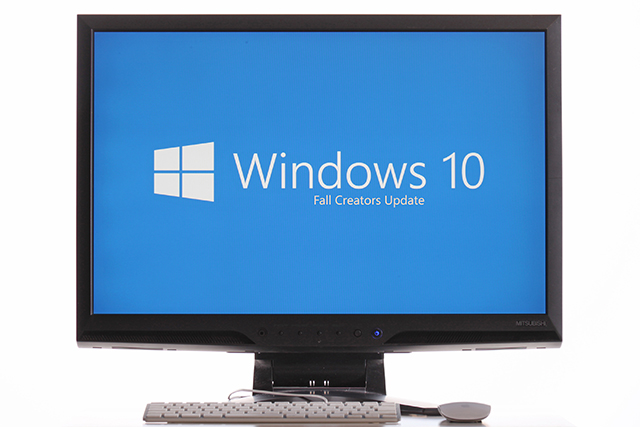
Meltdown: Microsoft issues an emergency fix for Windows 10 to address processor bug
News of an enormous security bug affecting millions of processors can't have escaped your attention over the last 24 hours or so. While Intel goes into a panicked meltdown, desperately pointing out that there's another bug affecting other processors too, software fixes are starting to emerge.
macOS has already been patched, and fixes have started to roll out to numerous Linux distros as well. Now Microsoft has pushed out a rare, off-schedule emergency fix for Windows 10 users which should be automatically installed. Users of Windows 7 and Windows 8 will have to wait until next week for a patch.
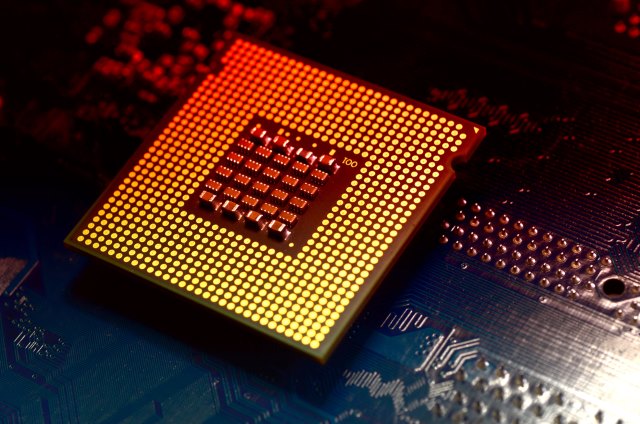
Intel chips have a huge security flaw, and the fix will slow down Windows and Linux machines
A design flaw has been discovered in Intel chips that will require major changes to be made to the Windows and Linux kernels. While patches are being worked on -- and in the case of Windows Insiders, have already rolled out -- users of both operating systems can expect to experience something of a performance hit. macOS machines running on Intel chips are also affected.
Intel is -- for the moment -- remaining tight-lipped about the specifics of the flaw that has been unearthed, but it is believed to affect processors produced in the past decade. Developers are currently estimating that systems could experience slow downs of between 5 and 30 percent.
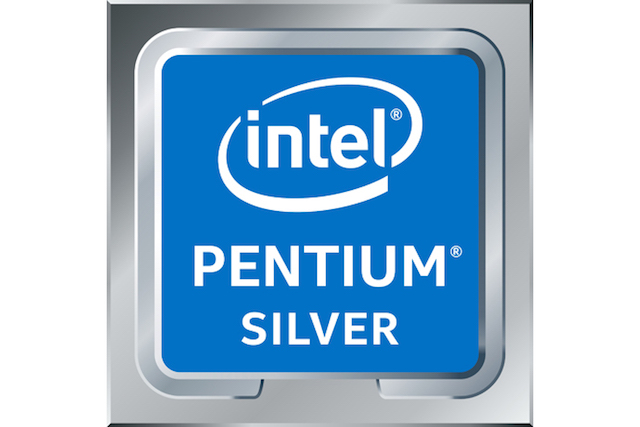
Intel launches budget-friendly Pentium Silver and Celeron 'Gemini Lake' processors
Not everyone needs top-of-the-line hardware. Quite frankly, outside of bragging rights, many enthusiasts don't even use their processors and RAM to their maximum potential. Laughably, people buy octa-core processors and 32GB of memory to surf the web. Yeah, Google Chrome is bloated, but even that web browser doesn't need that type of hardware!
Smarter system builders opt for value -- matching both their needs and wants to their budgets. Hell, sometimes it can be very rewarding to do more with less. After all, there is no skill in blindly throwing money at a build -- what's the fun in that? Today, Intel launches new "Gemini Lake" desktop and laptop processors aimed at computer users that want reasonable performance without breaking the bank. Despite eventually finding their way into budget builds and low-cost notebooks, these new Pentium Silver and Celeron chips should prove to be quite capable. In fact, Intel claims they are 58 percent faster than entry-level computers from four years ago.
